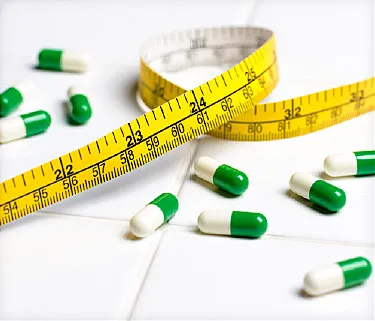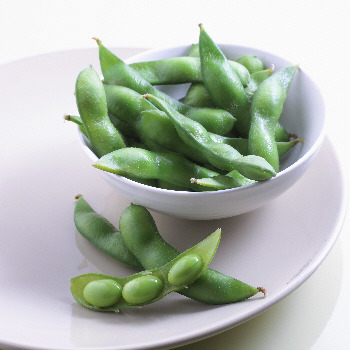We all make mistakes when trying to lose weight and with so many diet fads around its not surprising - as we are bombarded with conflicting information all the time.
I've put together 10 common mistakes and what to do instead:
1. Working out slowly to stay in the 'fat-burning zone'
It doesn't work because the total calories burnt will be lower when you run slowly for a long time than if you run shorter at a higher intensity. Furthermore, research shows that higher intensity workouts raise your metabolism for 24-48 hrs afterwards, therefore burns calories for longer too.
2. Not eating after your workout in the hope of burning extra fat as your metabolism speeds up.
This is simply not true. If you take in a mix of protein and carbohydrate after a workout it will aid recovery and allow you to perform better in later sessions.
3. Taking in diet supplements that promise to suppress appetite or increase metabolism
There is absolutely no evidence that these work, and if you read the back of the packets they often say they should be taken in conjunction with a balanced diet and physical activity.
Eat a balanced healthy diet and exercise regularly - avoid the pills, its all hocus pocus
4. Training for treats
Its easy to eat more calories than you burn and mentally its dangerous to tell yourself you have earnt those chocolates just because you've been out training. Even if it is a quick easy option.
Instead, prepare a healthy post-workout snack before you train, to avoid reaching for those naughty snacks.
5. Weighing yourself every day
 Focusing on weight loss only is not good long term. Its more sustainable and healthier to lose 1-2 pounds per week than 3-4.
Focusing on weight loss only is not good long term. Its more sustainable and healthier to lose 1-2 pounds per week than 3-4.
Weigh yourself a maximum of once a week, look for long term trends and remember that muscle weighs more than fat. So you could be getting leaner, not just skinnier - a much healthier look!
6. Eating a very low calorie diet thinking that your body will have to use its excess fat to fuel your workout.
This just makes your body go into starvation mode, and whilst you might lose weight initially, your metabolism will just drop and your body will cling to the fat rather than burn it for energy
8. Using sports drinks or gels to fuel short workouts
If you are eating well and fuelling up sufficiently before your training session there should be enough energy stored in your muscles to see you through two hours of exercise. you need the quick boost provided by energy products only if you are going longer than this. Otherwise, water is good enough.
9. Training harder, faster, longer to get leaner
If you don't give your body the rest it needs, you are at risk of overtraining which can cause hormone imbalances and have a detrimental effect on weight loss. Build up your training gradually, take at least one day off a week, eat a healthy diet, cross train.
10. Going training without breakfast
By the time you wake up, your bodys energy stores will be diminished, just from maintaining your bodes functions whilst asleep. Training on an empty stomach in the morning may affect your performance as your bodys starvation mechanisms may kick in, preventing the training adaptations that increase your metabolism in the longer term. Try to have some slow-release carbohydrate such as porridge or wholemeal toast before you head out.
I've put together 10 common mistakes and what to do instead:
1. Working out slowly to stay in the 'fat-burning zone'
It doesn't work because the total calories burnt will be lower when you run slowly for a long time than if you run shorter at a higher intensity. Furthermore, research shows that higher intensity workouts raise your metabolism for 24-48 hrs afterwards, therefore burns calories for longer too.
2. Not eating after your workout in the hope of burning extra fat as your metabolism speeds up.
This is simply not true. If you take in a mix of protein and carbohydrate after a workout it will aid recovery and allow you to perform better in later sessions.
3. Taking in diet supplements that promise to suppress appetite or increase metabolism
There is absolutely no evidence that these work, and if you read the back of the packets they often say they should be taken in conjunction with a balanced diet and physical activity.
Eat a balanced healthy diet and exercise regularly - avoid the pills, its all hocus pocus
4. Training for treats
Its easy to eat more calories than you burn and mentally its dangerous to tell yourself you have earnt those chocolates just because you've been out training. Even if it is a quick easy option.
Instead, prepare a healthy post-workout snack before you train, to avoid reaching for those naughty snacks.
5. Weighing yourself every day
 Focusing on weight loss only is not good long term. Its more sustainable and healthier to lose 1-2 pounds per week than 3-4.
Focusing on weight loss only is not good long term. Its more sustainable and healthier to lose 1-2 pounds per week than 3-4.Weigh yourself a maximum of once a week, look for long term trends and remember that muscle weighs more than fat. So you could be getting leaner, not just skinnier - a much healthier look!
6. Eating a very low calorie diet thinking that your body will have to use its excess fat to fuel your workout.
This just makes your body go into starvation mode, and whilst you might lose weight initially, your metabolism will just drop and your body will cling to the fat rather than burn it for energy
7. Cutting out fat
Fats are essential in our diets (you should aim to consume 25-30% in your total calorie intake). Restrict saturated fats found in butter meats and cheese and instead include monounsaturated fats such as oily fish, olive oil and nuts in your diet.8. Using sports drinks or gels to fuel short workouts
If you are eating well and fuelling up sufficiently before your training session there should be enough energy stored in your muscles to see you through two hours of exercise. you need the quick boost provided by energy products only if you are going longer than this. Otherwise, water is good enough.
9. Training harder, faster, longer to get leaner
If you don't give your body the rest it needs, you are at risk of overtraining which can cause hormone imbalances and have a detrimental effect on weight loss. Build up your training gradually, take at least one day off a week, eat a healthy diet, cross train.
10. Going training without breakfast
By the time you wake up, your bodys energy stores will be diminished, just from maintaining your bodes functions whilst asleep. Training on an empty stomach in the morning may affect your performance as your bodys starvation mechanisms may kick in, preventing the training adaptations that increase your metabolism in the longer term. Try to have some slow-release carbohydrate such as porridge or wholemeal toast before you head out.




